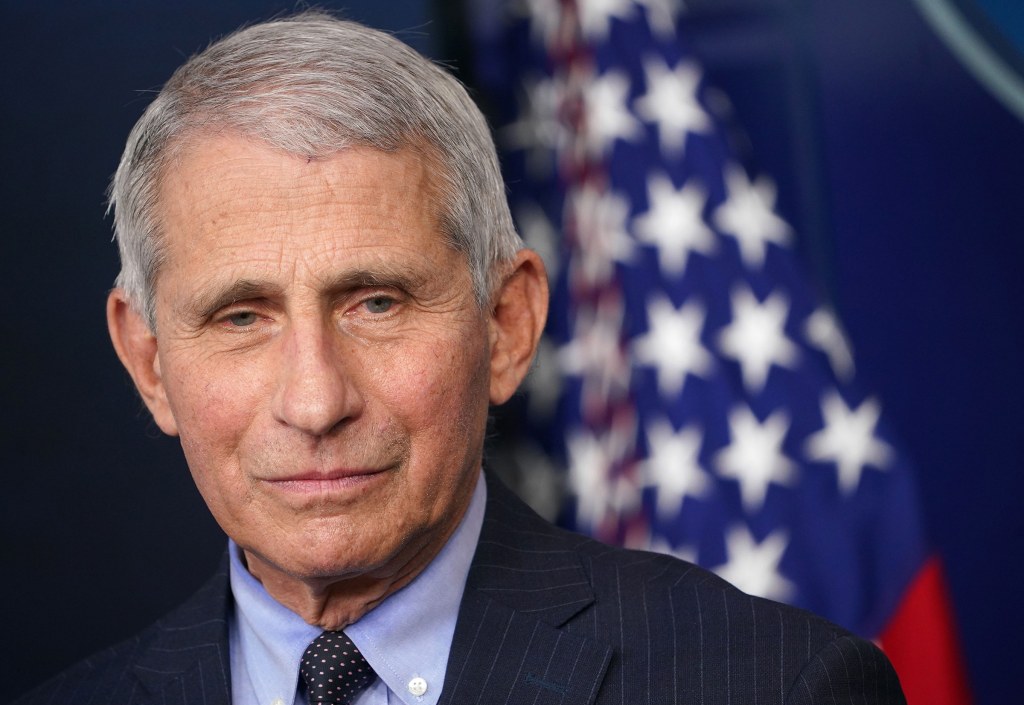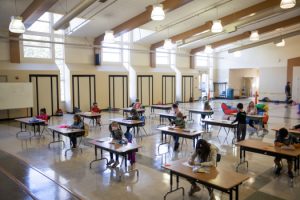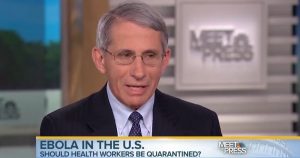Federal and state leaders say vaccine-supply disruptions caused by fierce winter storms across the country should subside in the next few days after millions of doses failed to reach their destinations this past week, leaving local health officials scrambling to make do with what they had on hand.
That has resulted in some vaccine appointment cancellations, because an unexpected shortage of Moderna doses — which was primarily affected — meant that prescribed second doses of that vaccine couldn’t be given.
At a news conference Friday, Andy Slavitt, White House Senior Adviser for COVID-19 Response, said about 6 million doses of the coronavirus vaccines have been held up due to severe weather across much of the central and southern United States, but said that was only a temporary delay.
“We anticipate all backlogged doses will be delivered within the next week,” Slavitt said, “most in the next several days.”
In the meantime, the failure to deliver Moderna doses has had notable impacts. In California, that equated to 702,000 shots that counties and healthcare providers had earmarked to continue vaccinating a population expanding from health workers and people over 65 to teachers and emergency personnel.
For San Mateo County-operated sites, when more than 14,000 Moderna doses did not arrive as expected, they dug into their Pfizer supply to fill the void. The trade-off was about 75 patients who had already gotten their first Moderna dose getting their second shot delayed until the doses come in, or being redirected to another provider, according to the county.
The storm-related delays caused Alameda County to fall about 3,000 doses short of expectations this week, but officials there say they have enough vaccine on hand to make it up, provided that deliveries resume soon. Contra Costa County similarly has not had to delay or cancel appointments at its sites, but have received anecdotal reports of other local providers being impacted by the shipment delays.
But even with deliveries getting back up to speed, California continues to be stretched between supply and the demand needed to achieve herd immunity for 40 million people, and by extension the full re-opening of the state.
At least 6.9 million vaccines have been administered to people in California, Gov. Gavin Newsom said at a Friday news conference in Hayward. That includes 264,000 shots given on Thursday, which stands as the single-highest vaccination day to date.
“We still have more work to do, but the scale and scope and size of the operation we’ve built up … allows for the ability to distribute and administer 2 to 4 million vaccines each and every week,” Newsom said. “The only constraint now is manufactured supply.”
That 4 million figure is the state’s target for weekly vaccinations, and dwarfs the number of vaccines coming in. This past week, 1.38 million vaccine doses were sent to California, and the state is slated to get 1.4 million in the coming week and about 1.5 million in the following week. It was not immediately clear the extent that the shipment delays could affect those projections.
“There is going to be some adjustment, there is going to be some impact,” Newsom said.
Newsom, like many officials across the country, are pinning their hopes of increases in supply with the availability of new one-shot vaccine produced by Johnson and Johnson, which is scheduled for emergency authorization review by the FDA at the end of the month.
The continued shortages endure as a new study of health-care workers by Israeli researchers, published Thursday in the British medical journal The Lancet, stated findings suggesting that a first dose of the Pfizer vaccine prevented up to 75% of COVID-19 infections. The authors acknowledged the limited scope of the study — about 9,000 people — that supports some assurances, including by Bay Area epidemiologists, that there is room for latitude between shots, and that a delay of one to two weeks won’t significantly diminish protection if shortages were to affect the availability of second doses.
In the United States, patients are directed to get a second Pfizer dose 21 days after the first, and for Moderna, that directive is 28 days.
Dr. Anthony Fauci, chief medical adviser to the president, said that despite research suggesting that just the first of the two-shot vaccines currently in use delivers robust protection against the coronavirus, the federal government will not recommend delaying the second “booster” shot, as the United Kingdom has done. He said there is insufficient research to demonstrate that a single shot delivers lasting protection, and concern that it could help foster dangerous variants by providing incomplete immune response.
“You could inadvertently be selecting for variants,” Fauci said. “We will stick with the scientifically documented efficacy and optimal response of a prime followed by a boost.”



















